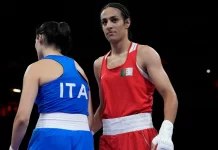More Muslims are killed in riots, then more of them get arrested, it’s not new
New Delhi. siyasat.net
The arrests in connection with the Delhi riots have been one-sided and made with the intention to target one community, according to Mahmood Madani, general secretary of the Jamiat Ulama-i-Hind (JUH). But it’s nothing new, he said, alleging that the general trend has been that more Muslims are killed in a riot, and then more members of the community are later arrested.
Talking with The Print he said that “It is natural that any type of violence will lead to arrests. But the nature of the arrests show that that they have been one-sided, and targeting only one community,”
“Whether it is riots that have taken place under the rule of BJP or Samajwadi Party or Congress, the one thing that’s common is that more Muslims get killed, more Muslims’ property is destroyed, and more Muslims are arrested,” he said.
The February Delhi riots killed 53 people, and several hundred others have been arrested in connection with the violence. Many of those arrested are activists who participated in the anti-Citizenship Amendment Act protests earlier in the year, including four students of Jamia Millia Islamia.
“At the time of a pandemic and lockdown, the manner in which law enforcement agencies have been arresting people is inhuman and irresponsible,” Madani said.
Madani further questioned why political leaders who made inflammatory statements haven’t yet been arrested.
“If a common person who may or may not have said something is arrested, then what about the leaders who talked about taking revenge; who said there will be blood on the streets. Why aren’t they being held accountable?” Madani asked, adding: “But if some people gather together to protest about a separate issue in a completely legitimate and democratic manner, they are subject to political vengeance.”
BJP leader Kapil Mishra, who held a pro-CAA rally just before the violence erupted, is accusedof making inflammatory statements, while the Union Minister of State for Finance, Anurag Thakur, stirred controversy for his “goli maaro” invocations weeks prior to the riots.
Kejriwal’s silence
Madani also questioned Delhi Chief Minister Arvind Kejriwal’s silence over the arrests. Kejriwal was earlier criticised for keeping his distance from the Shaheen Bagh protest, the centre of the anti-CAA demonstrations in the national capital, and had also later drawn flak for saying the protest site should be cleared.
Tahir Hussain, a now-suspended AAP leader, has also been named in the riot charge sheets, for allegedly playing a “pivotal role” in “organising the riots”. But Kejriwal continues to remain silent.
“The objection to his (Kejriwal’s) silence is valid; he should have spoken up,” Madani said.
However, he added that he wouldn’t like to blame one person and that there is a “silence all around” over the arrests.
Madani further said that Muslims have been reduced to second-class citizens in the country, whether in the question of life or of respect.
“Jaan, maal, izzat, aabroo — on all these parameters, it has become clear that Muslims have been reduced to second-class citizens,” he said. “I want to say more, but I am stopping myself as I don’t want the community to feel hopeless. But all evidence shows we are definitely second-class citizens now.”
Madani also accused the police of communalising the violence, citing examples of the 2013 Muzaffarnagar riots and the 2002 Gujarat riots.
“Most of these riots weren’t communal, 99 per cent of the violence in these cases was due to police action. In Delhi too, it’s the police which aided the mob to target Muslim colonies and Muslim shops,” he alleged.
Media communalised pandemic
Madani also hit out at the media for the “communalisation of the pandemic”.
“Both the mainstream media as well as the government are responsible for the communalisation of the pandemic in the country,” Madni said, adding that this has led to the harassment of ordinary Muslims.
Madani was referring to the Tablighi Jamaat congregation that took place in Delhi’s Nizamuddin in mid-March, which emerged as one of the initial hotspots of the virus.
In the weeks following the congregation, multiple reports of Muslims being harassed emerged. A group of Muslim vendors in Uttar Pradesh’s Mahoba district submitted a written complaint to the district magistrate in April, alleging that they were abused and stopped from selling goods by a group because of their religious identity, and some alleged they were accused of being Tablighi Jamaat members. A Muslim man in Himachal Pradesh, who was in touch with a Tablighi Jamaat member, committed suicide after he allegedly faced a social boycott by the villagers even after testing negative.
“At a time when Covid cases are on the rise, we should have been working together to fight the virus. Instead, a community is being targeted — whether it is in the name of the Delhi riots, or the Tablighi Jamaat incident,” he said.
He also said the media tried to term them ‘jihadi’, among other things.
“Everything bad they could associate with them, they did. I am surprised they haven’t yet been accused of being involved in anti-national activities, since they have already been accused of everything else that is bad,” Madni said
(www.siyasat.net is Ahmedabad,Gujarat, India based website)

































